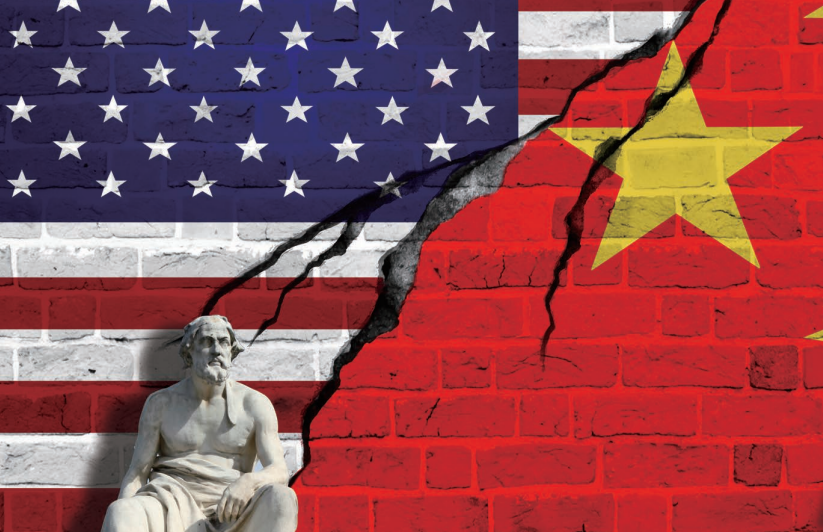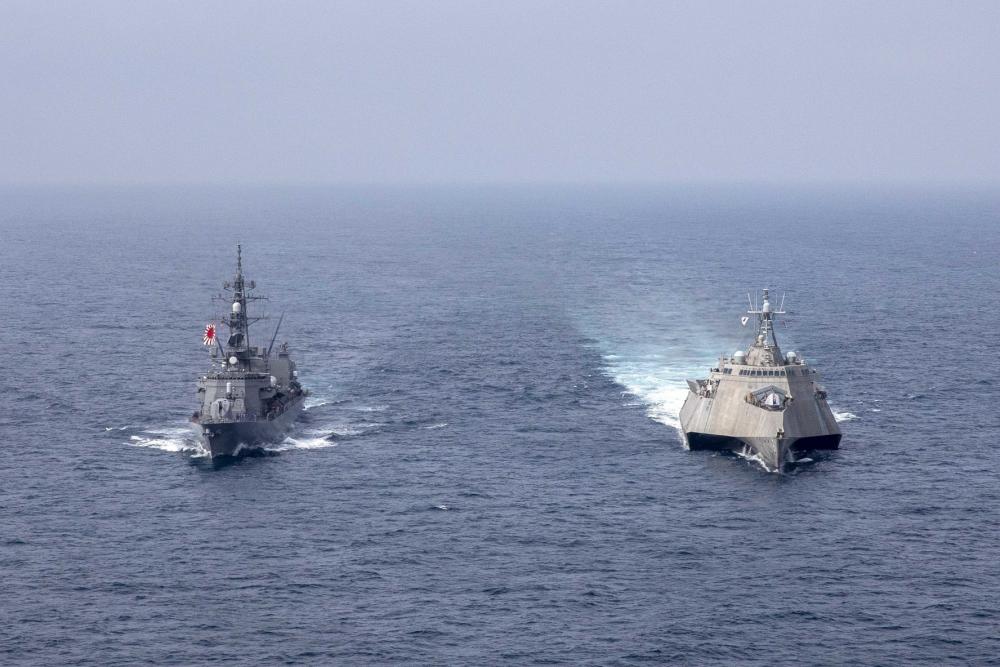Philip Cunningham, Independent Scholar
Apr 04, 2023
China and Russia recently released a joint statement to strengthen the strategic partnership between the two countries. But while Russia is now poised to get closer to China than it was before, it still has a long way to go to catch up to the U.S.-China relationship.
He Wenping, Senior Research Fellow, Charhar Institute and West Asia and Africa Studies Institute of the China Academy of Social Sciences
Mar 24, 2023
The hype over a separation of China and the United States is rooted in a new cold war mentality. But Premier Li Qiang said the two can and must cooperate. There is much they can achieve by working together, while encirclement and suppression is in no one’s interest.
Wu Zurong, Research Fellow, China Foundation for Int'l Studies
Mar 24, 2023
At the recent two sessions of the National People's Congress and the Chinese People's Political Consultative Conference in Beijing, Chinese Premier Li Qiang and Foreign Minister Qin Gang reiterated China's policy towards the US. Their statements included several important messages that the US should take to heart if it hopes to manage the Sino-US relationship successfully.
Brian Wong, Assistant Professor in Philosophy and Fellow at Centre on Contemporary China and the World, HKU and Rhodes Scholar
Mar 21, 2023
The deteriorating state of Sino-American relations is causing increasing concern as both sides engage in aggressive rhetoric and actions across multiple dimensions of their relationship. Academics, corporations, investors, and citizens must prepare for the worst by scenario planning, and adjusting their mindsets to brace for a prolonged period of rivalry, while remaining on the lookout for opportunities for collaboration and bridge-building.

Tao Wenzhao, Honorary Member of the Chinese Academy of Social Sciences; Fellow, CASS Institute of American Studies
Mar 15, 2023
The U.S. and many of its allies rely heavily on the Chinese economy. Decoupling is not realistic and would only lead to long-term economic decline. On its current path — which is nothing if not clumsy — the Biden administration is only hurting the American people.
Zhong Yin, Research Professor, Research Institute of Global Chinese and Area Studies, Beijing Language and Culture University
Mar 13, 2023
Qin Gang countered the false narrative pushed by the United States that frames China as an aggressive, coercive pillager. The balloon incident, a supposed Chinese plan to sell arms to Russia and allegations that Beijing intends to attack Taiwan soon only feed misunderstanding.

An Gang, Adjunct Fellow, Center for International Security and Strategy, Tsinghua University
Mar 07, 2023
It is crucial to prepare for all-out China-U.S. competition. The country that can best demonstrate wisdom, willpower and courage will have the advantage over time, and new cooperation models may alter the trajectory of history.
Brian Wong, Assistant Professor in Philosophy and Fellow at Centre on Contemporary China and the World, HKU and Rhodes Scholar
Mar 01, 2023
The heightened tensions between the U.S. and China are here to stay until both sides can reach common ground - which may have to begin in literal form in locations that both sides can send representatives to dialogue over critical issues.
Wang Zhen, Professor and Deputy Director, Institute for International Relation Studies, Shanghai Academy of Social Sciences
Mar 01, 2023
Western advocates of a renewed standoff between great powers are blinded by their biases, as China’s rise goes beyond Western experience. At a time of deep economic interdependence and with weapons unimaginable in the past, who can guarantee that a confrontation would not escalate out of control?
Doug Bandow, Senior Fellow, Cato Institute
Feb 27, 2023
While both China and the U.S. share blame in the increasing tensions between the two nations, it’s imperative that Presidents Biden and Xi find a way to rescue the relationship. Stateside, U.S. officials should seek support across the political spectrum to put a floor under American policy toward the PRC, as well the bilateral relationship.
Back to Top

- China-US Focus builds trust and understanding between the U.S. and China through open dialogue among thought leaders.
- Our Offerings
- Topics
- Videos
- Podcasts
- Columnists
- Research Reports
- Focus Digest
- Stay Connected
-
Thanks for signing up!
- Get the latest stories from China-US Focus weekly.